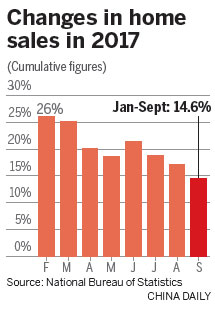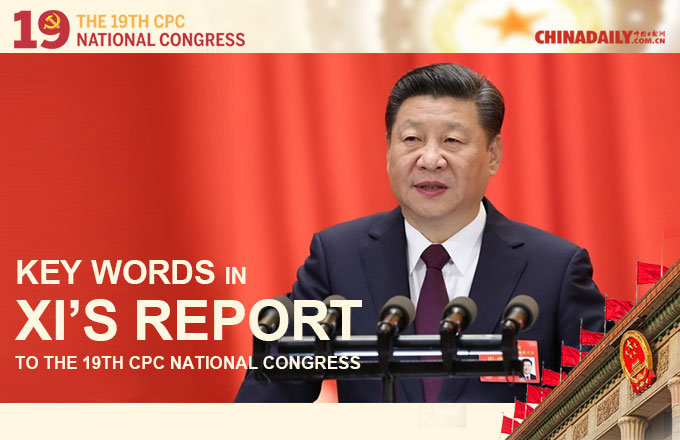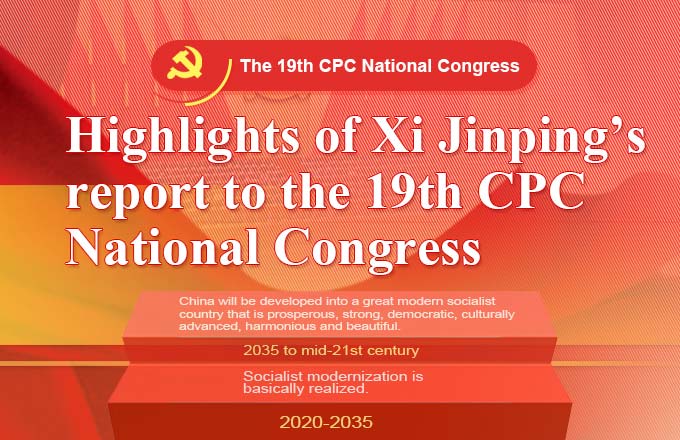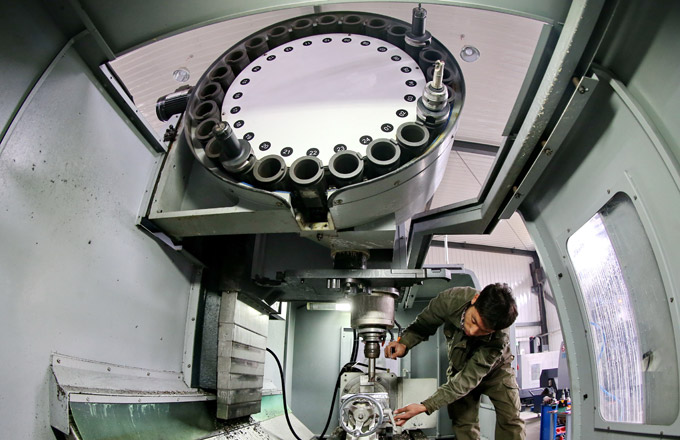Red-hot housing market cools down as brakes applied
New home prices in large Chinese cities fell slightly in September while gains in smaller cities slowed as city-specific measures to cool the overheated property market continued to take effect.
Analysts said more measures for steady and stable growth of the housing market are likely to be introduced across China, and more supply models for meeting various housing demands also will be found as the country vows to offer inclusive housing conditions to residents nationwide.
Wang Menghui, minister of housing and urban-rural development, said at a media briefing on Sunday that authorities will keep anti-speculative, city-specific measures consistent and will not loosen controls against speculation.
"The real estate market must stick to the idea that 'homes are for people to live in, not for speculation'," he said.
Wang said the authorities have been stepping up the process to enact new laws regulating the residential leasing market, one of the long-term measures for steady and stable development of the housing market.
According to the National Bureau of Statistics, in data released on Monday, both new home and pre-owned home prices in first-tier cities dropped by 0.2 percent on a monthly basis on average in September.

New home prices in second-tier cities rose by 0.2 percent on a monthly basis, on par with the change in August. Pre-owned home prices gained 0.2 percent in September, but the monthly growth is 0.1 percentage point lower than that in August.
In third-tier cities, monthly growth in new home prices declined by 0.2 percent and pre-owned home prices fell by 0.1 percent when compared with August.
In earlier data from the National Bureau of Statistics, property sales in China between January and September reached 9.19 trillion yuan ($1.385 trillion), a 14.6 percent year-on-year increase. That still was lower than the 17.2 percent recorded for the period of January to August.
Yan Yuejin, an analyst at E-house China R&D Institute, a property information provider, said the overheated housing market in large cities had been curbed while the markets in lower-tier cities remain stable.
"Existing measures have been having continued effects," he said.
"More cities are likely to introduce measures for stable and steady development of their housing markets in the near future," said Zhang Dawei, an analyst at Centaline Property, a housing market services provider.




















